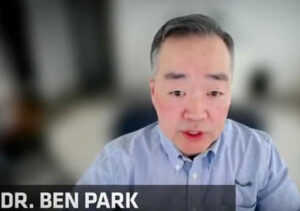 The future of cancer research is in jeopardy, and peoples’ lives are at stake.
The future of cancer research is in jeopardy, and peoples’ lives are at stake.
In the history of humankind, cancer research has never been at the point it is today. What was deemed science fiction when I started my oncology training in the mid-90s is now routine.
For example, in a relatively new cellular therapy, we’ve figured out how to extract people’s immune cells—called T cells—insert foreign genes into them to target a patient’s cancer and give them back to that patient. This type of immunotherapy has cured previously untreatable lymphomas and is revolutionizing how we think about treatment for several cancers.
That kind of advancement didn’t happen by accident. It took decades of rigorous, federally supported research. And it’s not just high-level theory—it’s happening in hospitals and clinics, improving outcomes for real patients.
We have years of steady, reliable investment in science to thank for that. The best, truly, was yet to come.
But recent disruptions to federal funding are threatening to stall—or worse, reverse—that momentum. The issue isn’t theoretical. Any delay in research funding can create bottlenecks that take years, sometimes decades, to overcome. And that’s before you consider how funding gaps can undermine the clinical trials already underway.
Even in the best of times, medical research is a long game. Discoveries take time, and the infrastructure to support them is delicate. When funding is unpredictable or inadequate, promising avenues go unexplored, talented scientists leave the field, and patients lose access to the care they desperately need.
Much of the public focus has rightly been on the National Institutes of Health, where delays and cuts have already impacted institutions like mine. But this isn’t just about research in general. These funding challenges are also hurting those who served our country.
In my role as director of a prominent cancer center, I’m proud of a long-standing partnership with the Department of Veterans Affairs medical system. This collaboration isn’t symbolic—it saves lives. Together, we’ve built one of only two programs in the entire VA system that offers bone marrow transplants for cancer treatment. We’re also the only VA-approved site for the advanced cellular therapy I mentioned earlier. That means veterans from across the country are referred here for a shot at survival.
These programs require highly trained staff, specialized labs and tight coordination—all of which are sustained by federal research dollars. Without them, we can’t continue to offer this level of care. That’s not a hypothetical. It’s an immediate threat.
The VA health system plays a crucial role in training the next generation of physician-scientists. Young researchers often rely on early-career federal grants to get started. They bring fresh ideas and energy to the field, and many are motivated by a deep desire to serve. Delays in that funding mean we risk losing them—and the discoveries they might one day make.
And here’s what I don’t want lost in this discussion: Research is patient care.
Clinical trials are not just science experiments. They are often the best or only treatment options available to people with aggressive or advanced diseases. When trials are paused or canceled due to budget constraints, patients lose access to hope. Their lives are caught in the crossfire of political warfare and haphazard approaches to reducing federal spending.
When Secretary of Veterans Affairs Doug Collins took the helm of the VA, he promised to safeguard veterans’ health care and benefits. That was a powerful and important commitment. But to keep that promise, the VA must also protect the research enterprise that underpins so much of the specialized care our veterans receive.
We need clarity from our leaders. We need to know which funding streams are being preserved—and which are at risk. We need assurance that the VA’s partnerships with academic medical centers, like ours at Vanderbilt, will be supported and expanded—not weakened by budget constraints.
The cuts we’ve already seen are unlike anything I’ve witnessed in my career and are going to undermine a lot of the progress we’ve made. And, yes, that means peoples’ lives will be affected.
It’s tempting to think of medical research as a luxury—something to be funded when times are good. But the truth is the opposite: research is how we make times better. It’s how we save lives. And it’s how we keep promises to those who’ve already given so much.
We must protect it.






